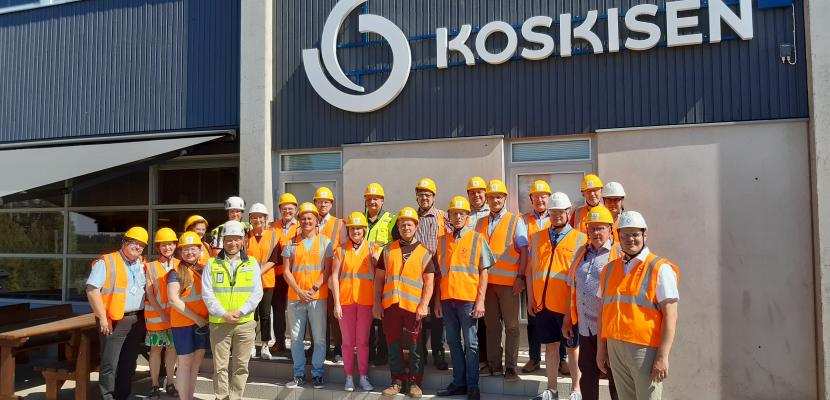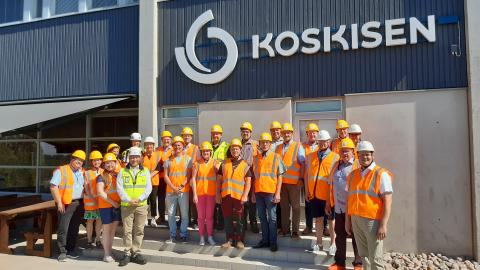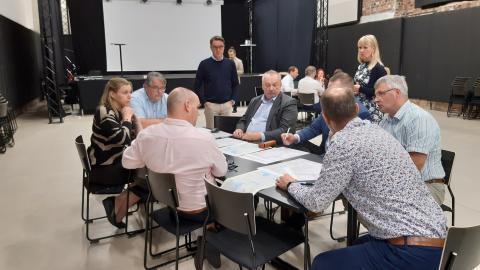
Päijät-Häme Region Chairperson's Forum

About this good practice
In Päijät-Häme, the political leaders of cities and municipalities have been cooperating in the Chairperson’s forum since 2017. The need for intensifying municipal cooperation arose from the realization that municipalities jointly own several companies, requiring coordinated ownership steering. As the region has suffered from industrial transformation, collaboration has expanded to include themes related e.g to ensuring the region's vitality, regional advocacy and areas where there is a need to build consensus and strengthen trust.
Since its establishment, the Forum has expanded into a cooperation platform that coordinates and brings together intermunicipal preparation efforts. Its primary role is to serve as a strategic cooperation forum for regional development and as a solution-oriented channel that unites municipal perspectives.
In addition to the chairpersons of the municipal councils and boards in the region, the meetings are attended by the municipal executives (municipal and city managers), the chairperson of the regional council, the regional mayor, and the members of the regional council's executive team. The activities are facilitated by the regional council, and one staff member has been hired for this purpose with funding from the municipalities.
The Forum establishes an action plan and goals for each electoral term, with progress monitored annually.
Forum has meetings once a month. In total, approximately 35 people participate in the meetings.
Resources needed
The amount of funding has been 85 000 euros per year covering the salary of one staff member in the Regional council, costs of the monthly meeting arrangements, expert fees, travelling costs etc. The costs are divided in proportion to the population of the municipality/city.
Evidence of success
Quantitative indicators: Has been operating continuously for nine years, meets 10 times a year, number of participants varies from 30 to 35 (a good participation rate).
Qualitative indicators: Organizing professionally facilitated workshops and ordering one to two surveys per year. An example of facilitated workshops: Promoting Vitality and Land Use (2024). The results of the self-assessment survey indicate that cooperation is considered important and there is a desire to continue it.
Potential for learning or transfer
The practice serves as an example of an approach that can build trust between municipalities, the region, joint municipal authorities, and the officials and elected representatives working within them. It can also help in
- seeking political consensus during the preparation phase of intermunicipal projects,
- strengthening intermunicipal cooperation,
- developing strategic collaboration at the regional level, and
- supporting regional advocacy at the national level.
Further information
Images



